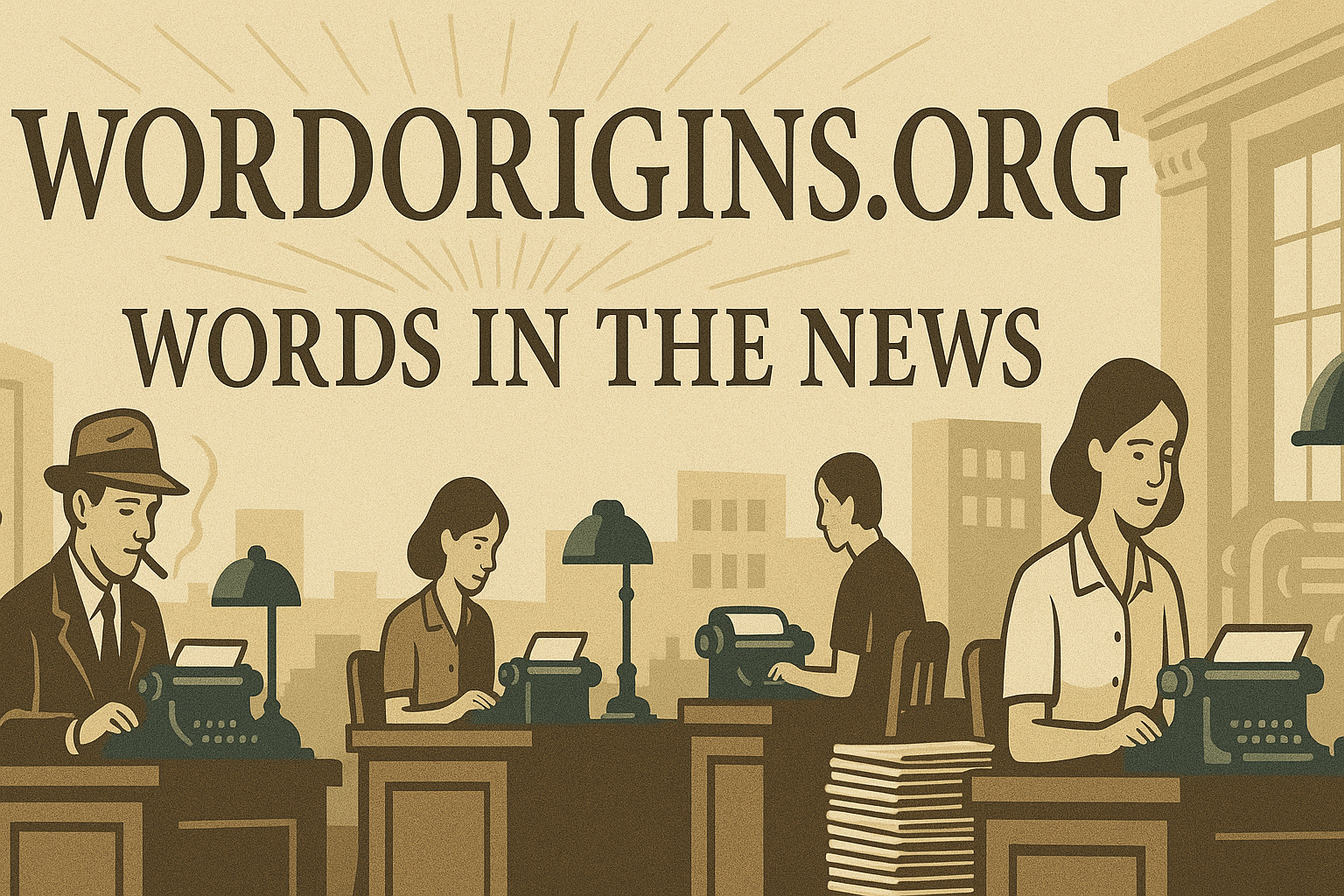antifa

[“Words in the News” is a weekly, premium feature or Wordorigins.org. I’m making this one available for free because of the word’s overwhelming salience in the current news cycle. If you’d like to see more of these, please upgrade to a paid subscription.]
16 October 2025
In its present incarnation, while it is often styled as a “group” or “organization,” antifa is more of a political ethos or orientation that opposes fascism and anti-democratic forces. While not inherently violent, those self-identify as antifa are often willing to respond with violence when confronted with fascist threats. But in past eras, the term Antifa has referred to specific organizations.
First, the origin. The word antifa is simply a clipping of antifascist. Use in English stems from the German Antifaschismus and antifaschistisch, although the term is somewhat older in the Italian antifasciste, reflecting Mussolini’s rise to power a decade before Hitler’s.
We see the Italian antifasciste, used in reference to Mussolini’s Fascist party, in the 18 August 1922 edition of the San Francisco Italian-language newspaper Corriere del Popolo:
Il movimento fascista e’ passato ad assaltare le posizioni elettorali avversarie, che non risultano essere state conquistate con un colpo di mano violento, e senza distinzione di tendenze; tanto e’ vero che anche il Comune di Carrara, amministrato dai repubblicani non sospetti di pregiudiziali antifasciste.
(The fascist movement has moved on to attack the electoral positions of its opponents, which do not appear to have been conquered through a violent coup, and without distinction of tendencies; so much so that even the Municipality of Carrara, administered by the Republicans, is not suspected of antifascist prejudices.)
And in a 26 February 1937 article in New Jersey’s Jersey Journal, we see the word Antifa used as the name of an Arab-Jewish organization in Palestine opposed to the Nazis:
The speaker at the Peace Institute on Wednesday will be Charles B. Sherman, national American secretary of Antifa, Palestinian Anti-Fascist organization of Palestine working for Arab-Jewish solidarity. Messages will be read from Morris Erem, Jew, and Nejib Yussuf, Arab, an Antifa delegation recently arrived in this country. Antifa is now organizing branches in various countries.
Following World War II, Antifa was used as the name for a Soviet-sponsored political bloc in East Germany. Here is an example from the 7 July 1947 Charlotte Observer:
What is known as the “Antifa” (anti-Fascist) bloc, composed of the chairmen of the three parties, will hereafter decide all major legislative issues in the four provinces of the Soviet zone. But to insure “proper democratic representation,” the bloc will be enlarged to include representatives of at least four semipolitical organizations which always vote as the Soviets dictate.
The sense of antifa as political orientation rather than an organization arises in post-unification Germany, when it is used in opposition to neo-Nazi groups. Here is an example from an Associated Press report of 5 December 1993:
The report also quoted Norbert Weidner, a leader of the far-right Free German Worker’s Party, as saying his group had planted spies in the left-wing Antifa movement, mainly women “because men open up to them more easily.”
Antifa militants attack neo-Nazis and have set up phone trees so foreigners can call for help when threatened by right-wing skinheads. Antifa claims its vigilante actions are justified by inadequate police response to right-wing violence.
And in more recent use, in response to the coming to power of antidemocratic politicians in Europe and the United States, we see examples like this from Britain’s Mail on Sunday of 31 January 2016:
Rocks and smoke bombs were thrown in Dover between far-Right protesters and members of antifascist group Antifa. One person's arm was broken and five others were injured, though not seriously. Another man reportedly had a brick thrown at his face.
Police seized weapons including a knife, hammers and knuckle dusters. Coaches at a service station outside the town were also damaged as Right-wing activists attacked Antifa protesters.
And in the United States, there is this from the 27 June 2016 edition of the Los Angeles Times:
The anti-fascist organization Antifa Sacramento, which had been promoting a “Shut Down Nazi Rally” event on its website, did not respond to requests for comment.
“The Nazis are the violent ones—we are acting in self-defense,” said [Yvette] Felarca, who sustained a bloody blow to the head.
“We need to take them head-on, confront them, but with as many people as possible.”
So when we speak of antifa in the present political context it is not an organization or group but rather an unstructured political orientation that opposes fascism or even authoritarianism more generally, although in the past, either before or during World War II or after the war in Soviet-controlled East Germany, Antifa has been used as the name of organizations that were opposed to fascism.
Sources:
Associated Press. “Neo-Nazis’ Enemies on Computers.” Post and Courier (Charleston, South Carolina), 5 December 1993, 14/1. Readex: America’s Historical Newspapers.
Clark, Delbert. “Russians Tighten Political Grip on Eastern Germany.” Charlotte Observer (North Carolina), 7 July 1947, 5/4–5. Readex: America’s Historical Newspapers.
Creasy, Richard and Ben Ellery. “Far-Right Protests Erupt in Violent Fury.” Mail on Sunday (London), 31 January 2016. 17. ProQuest Newspapers.
“La Crisi della Democrazia Italiana” (18 July 1922). Corriere del Popolo (San Francisco, California), 18 August 1922, 1/4. Readex: America’s Historical Newspapers.
“Jewish Center Group Doings.” Jersey Journal (Jersey City, New Jersey), 26 February 1937, 3/1–2. Readex: America’s Historical Newspapers.
Oxford English Dictionary Online, September 2018, s.v Antifa, n.; March 2023, anti-fascism, n.
“7 Stabbed at Racially Charged Rally.” Los Angeles Times (California), 27 June 2016, A13/1. Readex: ProQuest Newspapers.